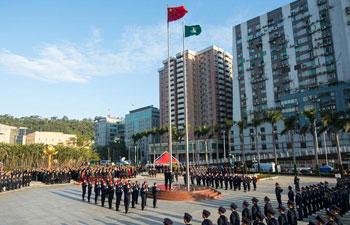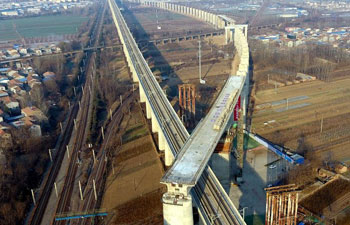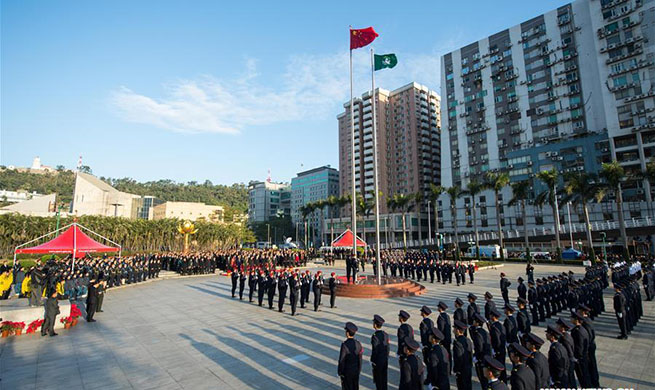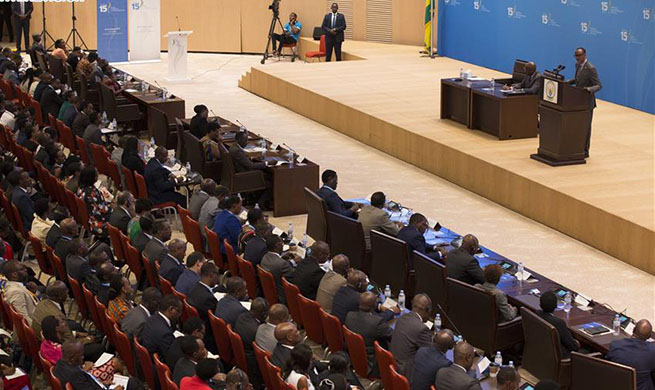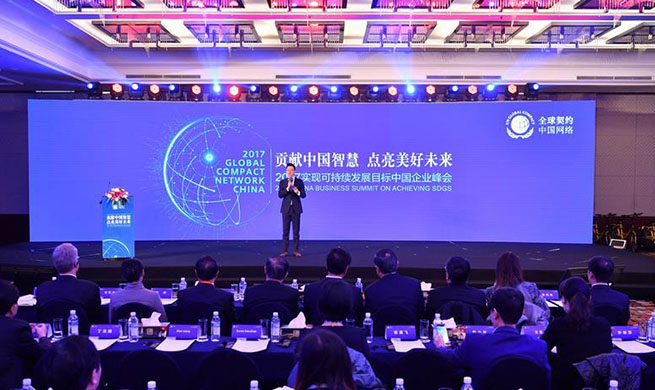BEIJING, Dec. 20 (Xinhua) -- Latin America has been going through an adjustment period in 2017, with economic recovery underway, political tensions eased, and regional countries changing foreign policies based on their respective needs and the international situation.
ECONOMIC, POLITICAL RECOVERY
Negative growth had been a cloud hanging over the continent for two consecutive years, but was finally dispelled by the recovery in 2017, a major result of price hikes concerning coal, oil, natural gas and metals on the global market.
The upbeat is further supported by the United Nations Economic Commission for Latin America and the Caribbean, which forecasts that economic growth in the region will be 1.2 percent this year and 2.2 percent in 2018.
However, the gradual recovery is unlikely to turn into a strong rebound due to multiple internal and external uncertainties, such as languished commodity prices, the faltering renegotiation of the North American Free Trade Agreement (NAFTA), and slow progress in the structural reforms of regional countries.
The political arena has witnessed no bombshell. Brazilian President Michel Temer, who took office after his predecessor Dilma Rousseff was impeached for fiscal wrongdoings and was removed from office last year, avoided an impeachment as Brazil's lower house voted to drop corruption charges against him in October, securing Temer's term due in 2018.
December marks a new step towards political stability for the ruling United Socialist Party of Venezuela, which garnered a sweeping victory in regional elections, winning 308 municipalities out of 335, after the opposition Democratic Unity Roundtable agreed to talks with the government to address a bitter power struggle that has existed for years.
In Argentina, despite widespread opposition, the government has secured an upper hand in pushing forward a series of market-oriented economic reforms. A recent case of President Mauricio Macri's victory was the Congress' approval of a pension system reform Tuesday.
Yan Jin, a research fellow on Latin American issues with China Institutes of Contemporary International Relations, said the right wing has been regaining strength after last year's power struggle with the left, and is promoting structural reform and consolidating power.
Meanwhile, the left wing is taking this opportunity to build up its political and social influence, Yan said.
CHANGES IN U.S. POLICY
For years, the United States has adopted a "carrot and stick" approach towards its relations with Latin America, but several changes occurred since U.S. President Donald Trump took office in January.
Although the U.S. Congress hasn't ratified the building of a wall along the U.S.-Mexico border, Trump has so far not changed his stance on the issue, keeping to the promise he made in his presidential campaign.
Controversy was provoked over the U.S. demand for renegotiating the North American Free Trade Agreement (NAFTA), as the fifth round of talks in Mexico bore few fruits. Mexico faces mounting pressure from the U.S. government, who said the treaty has harmed the American economy and threatened to scrap the agreement.
The United States has also witnessed setbacks in its relations with Cuba, as the current administration retreated from progress made by the Obama administration in normalizing bilateral ties.
Furthermore, the United States announced several rounds of sanctions against Venezuela over President Nicolas Maduro's efforts to establish a National Constituent Assembly, and led the European Union and some Latin American countries to pressure the Maduro administration.
Xu Shicheng, a research fellow with the Institute of Latin American Studies at the Chinese Academy of Social Sciences (ILAS CASS), a top national academic organization, pointed out a weakening unity of Latin American countries under such circumstances, adding that less progress has been achieved as the regional integration process faces multiple obstacles.
MULTIDIMENSIONAL FOREIGN TIES
Latin America has been adding new dimensions to its foreign relations, expanding mutual development with Europe and Asia, and gaining momentum in fostering closer ties with China.
In 2017, the region was designated as the natural extension of the 21st Century Maritime Silk Road, a new maritime route as part of the Belt and Road Initiative proposed by China in 2013.
Mexico, Chile, Argentina, Brazil, Peru and others have also shown their intention of joining the initiative and forming a strategic cooperation with China.
"China is undergoing a shift in economic structure, while Latin America is experiencing changes and economic recovery. The new year will witness closer development between the two parties," said Guo Cunhai, assistant researcher at ILAS CASS.
"How will both sides exchange governing experience to achieve a win-win situation is a topic that is worth our focus," Guo said.




